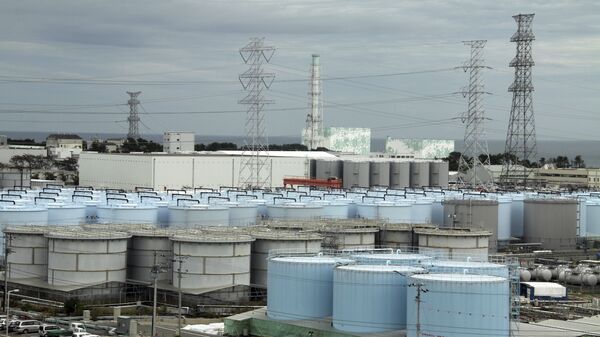This means that the level of radiation in the air and water has purportedly returned to safe levels, such as those recorded before the tragedy.
Sputnik has asked some Russian experts who are closely following the situation to comment on the news.
Sergey Gribalev, the Head of the Ecological Laboratory for Public Control and a member of the Collective Council at the Russian Ministry of Natural Resources and Ecology, agrees that in recent years enormous work has been done in Japan to eliminate the consequences of the accident. The expert, however, expressed some concern.
“Satellite pictures show that the nuclear power plant regularly discharged water into the ocean. According to Japan, this water has been thoroughly purified from radionuclides and everything is under control. And indeed all the necessary measurement results are publicly accessible. But unfortunately, Tokyo has rejected all the requests to carry out an international monitoring of the situation”, Gribalev explained.
“It seems to me that a joint project by scientists from various countries on the site can help to better calculate all the risks; especially for the future. In fact, if plankton and oceanic fauna get even a small dose of radiation, it can become a ticking time bomb. For instance, it can lead to activity and the birth of new bacteria, and even mutations in the fish that end up on our tables”, the expert added.
For his part, Sergey Frolya, Candidate of Physical and Mathematical Sciences who is part of the international project for the purification of water from radiation for TEPCO (Tokyo Electric Power Company), doesn’t share Gribalev’s concerns.
“I constantly monitor publicly accessible TEPCO data and I totally trust it”, he told Sputnik.
“The data is updated several times a day. Moreover, in a week I will be in Japan myself and I’m definitely going to this beach”, Frolya said.
“People have been living in this area for some time, so water control in this place has been particularly painstaking for years. The figures it shows correspond to world safety standards and all the criteria of the World Health Organisation. I recognise the fact that the long-term effect of small doses of radiation hasn’t yet been fully investigated; we don’t have much data. But at the moment the WHO says that small doses of radiation don’t directly affect a person. In any case, they don’t represent a threat to life”, the scientist said.
Gribalev, however, believes that you cannot be 100% certain of anything with respect to radiation.
“Fukushima-1 is an American project. Shortly before the great disaster, after a check-up, some US representatives had warned that its security systems were obsolete and proposed to modernise them. But the proposal was rejected; they assumed that nothing terrible could happen in the two years before the date set for the closure of the plant”, Gribalev explained.
“Unfortunately, today we know that it’s not possible to calculate everything. I am convinced that the monitoring of these potentially dangerous facilities must be international. Such a safety net hasn’t hurt anyone yet”, the expert concluded.
The views expressed in this article are solely those of Sergey Gribalev and do not necessarily reflect the official position of Sputnik.

